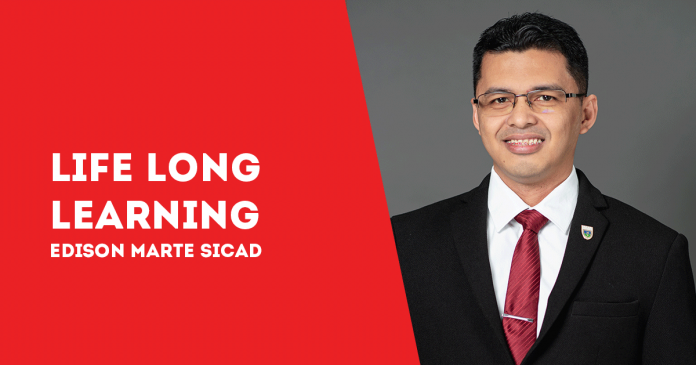
BY EDISON MARTE SICAD
THE DRUDGERY of daily work can dissipate one’s energy or passion to serve. And if we include office politics and family concerns as normal occurrences in a person’s life, going to work could then become burdensome.
What is work? In a cynical point of view, work is all about dealing with other people’s problem while solving your own problem — as more problems occur.
This is actually a very interesting phenomenon. In my line of work, I get to learn a lot about human nature and our propensity to be self-serving.
Work is a balancing act between serving others and serving one’s self.
As a court legal researcher, here are some things I learned along the way:
1. Self-motivation can have a selfish motive — which is not necessarily bad.
Going to work may be likened to going to war: make sure you get out of it alive (for tomorrow is another battle). Although you may have a duty, an oath, to fulfill in serving the government, you also have a duty, a responsibility, to your own self. As the saying goes, “Never allow your work to destroy your dreams.”
2. Having a lot of money can destroy a person or family relations.
In other words, having a lot of money is not a guarantee of having a problem-free life. It can even create new (or worse) problems.
I am not saying that poverty is a “good” thing. What I am trying to point out is that people from all walks of life, and from any income bracket, so to speak, have their own problems to deal with.
In a sense, the root cause of a problem is the person, not the situation. But, interestingly, this is only to a certain extent. In some court cases, the accused can also be a victim of the society — and the imaginary mass of people are the guilty ones.
3. Public service is a personal responsibility.
The technicalities of the law and the bureaucratic aspect of due process can dampen one’ spirit and may lead to people objectifying other people: people as stepping stones or obstacles to hurdle with.
The idea then is to clarify one’s goal and work with the system with integrity.
IN CONCLUSION, as a court legal researcher, I look for reasons to support the conviction or acquittal of a person. My work somehow affects, indirectly, the freedom and the rights of others.
But I think we all affect other people’s freedom and rights. And in this age of social media platforms, we may, directly or indirectly, even affect or influence other people’s mental health.
I still have so much to learn from my work. I still need to be more responsible and accountable./PN



